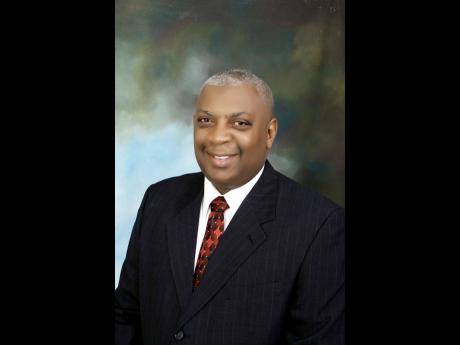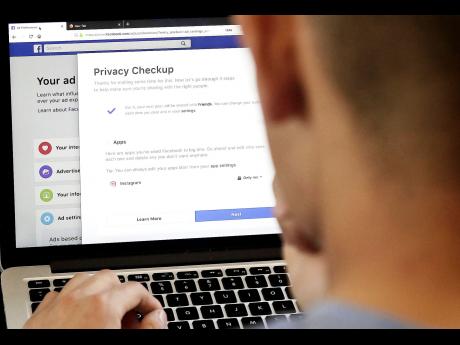Paul Golding | Teens and technology in Jamaica
"Recently thought of deleting my Facebook account and start using Twitter, but realised it's not easy. Facebook has become like the boyfriend I no longer like but scared to dump because I've invested so much time in the relationship."
- Manasa Rao Saarloos, author
On Thursday, May 31, 2018, the United States of America Pew Research Center, a non-partisan fact tank that informs the public about the issues, attitudes and trends shaping the world, published an authoritative report titled 'Teens, Social Media and Technology 2018'. The following day, several international media houses reported on these Pew findings, including the BBC and The Guardian. The Pew research found, among other things, that YouTube, Instagram and Snapchat were the most popular online platforms among US teens.
The College of Business and Management at the University of Technology, Jamaica (UTech, Jamaica) recently conducted the first comprehensive national survey on Jamaican teens' use of digital technologies, including social media. This research will be published in the autumn of this year; however, preliminary results can be juxtaposed with the Pew study to determine how Jamaican teens use of social media compared with the USA.
The UTech and the Pew surveys were conducted at around the same time during the months of March and April 2018. The definitions of teens are comparable with UTech referring to teens as ages 13-18 and Pew 13-17.
As it relates to access to the Internet, smartphones are the device of choice in both countries. Seventy-four per cent of Jamaican teens use smartphones, while in the USA, its use is almost ubiquitous, with 95 per cent usage. Access via desktop or laptop is more dichotomous between the two countries, with only 44 per cent using these devices in Jamaica, while the USA usage exactly doubles the amount with 88 per cent usage.
Higher levels of mobile connections in the USA appear to be fuelling more persistent online activities, according to Pew. Forty-five per cent of US teens say they are online almost constantly, while 83 per cent of Jamaican teens spend between one and three hours online daily. A focus group discussion with Jamaican teens suggests that the comparatively low time spend online is because of the unavailability of Wi-Fi. According to one teen, if he had Wi-Fi, he would be online 24/7.
The higher access rate in the USA is reflected in general higher usage rate of social media platforms. Among Jamaican teens, Instagram is the most popular with 59 per cent usage, followed closely by (2) Snapchat 58 per cent, (3) Twitter 57 per cent, (4) Tumblr 48 per cent, (5) Facebook 47 per cent, and (6) YouTube 21 per cent. In contrast, the most popular social media among USA teens is YouTube 85 per cent [ranked sixth by Jamaican], (2) Instagram 72 per cent [1st by Jamaica], (3) Snapchat 69 per cent [2nd by Jamaicans], (4) Facebook [5th by Jamaicans], (5) Twitter 32 per cent [3rd by Jamaicans] and (6) Tumblr [4th by Jamaicans].
MORE DIFFUSED LANDSCAPE
An evaluation of the data indicates that the same set of platforms is used in both countries with variation in persistent usage rates as mentioned earlier. The social-media landscape once dominated by Facebook is a lot more diffused. Facebook is ranked fifth by Jamaican teens and fourth by US teens. YouTube, which is the highest-ranked social media platform in the USA, is not generally viewed as a social-media platform but more as a video-sharing platform. This could contribute to its low ranking in Jamaica.
Instagram and Snapchat are highly regarded in both countries. It must be noted that Instagram is owned by Facebook. In 2013, it was reported that Facebook tried to purchase Snapchat for US$3 billion to boost its appeal with younger users, but was rebuffed. It is alleged that Mark Zuckerberg, Facebook owner, has since positioned Instagram as a Snapchat killer.
Twitter and Tumblr usage between the two countries makes an interesting contrast. Twitter and Tumblr are ranked third and fourth respectively in Jamaica while in the USA it is ranked fifth and sixth respectively. The reason for the popularity among Jamaica teens will be further interrogated in the final report. Jamaican teens may be on the forefront of a trend as the importance of Twitter continue to grow in politics and popular culture.
WhatsApp which was not mentioned in the Pew report and anecdotally is expected to have high popularity levels in Jamaica, however among teens only 20 per cent of the respondents rated the platform highly. Google which was the most popular app among Jamaican teens was near-ubiquitous usage with 94 per cent popularity. Ok, Google.
The final report on Jamaican Teens usage of digital platforms will explore several other factors including privacy, handling online problems, online stress, fake news, sexting, bullying, technology at school and online dating. The report will be published during the months September-October 2018 and will be the first comprehensive study to take a snapshot of what Jamaican teens are doing and thinking to get a better understanding of how network technologies affecting their daily lives.
- Professor Paul Golding is dean of the College of Business and Management, UTech. Email feedback to columns@gleanerjm.com and pgolding@utech.edu.jm.


